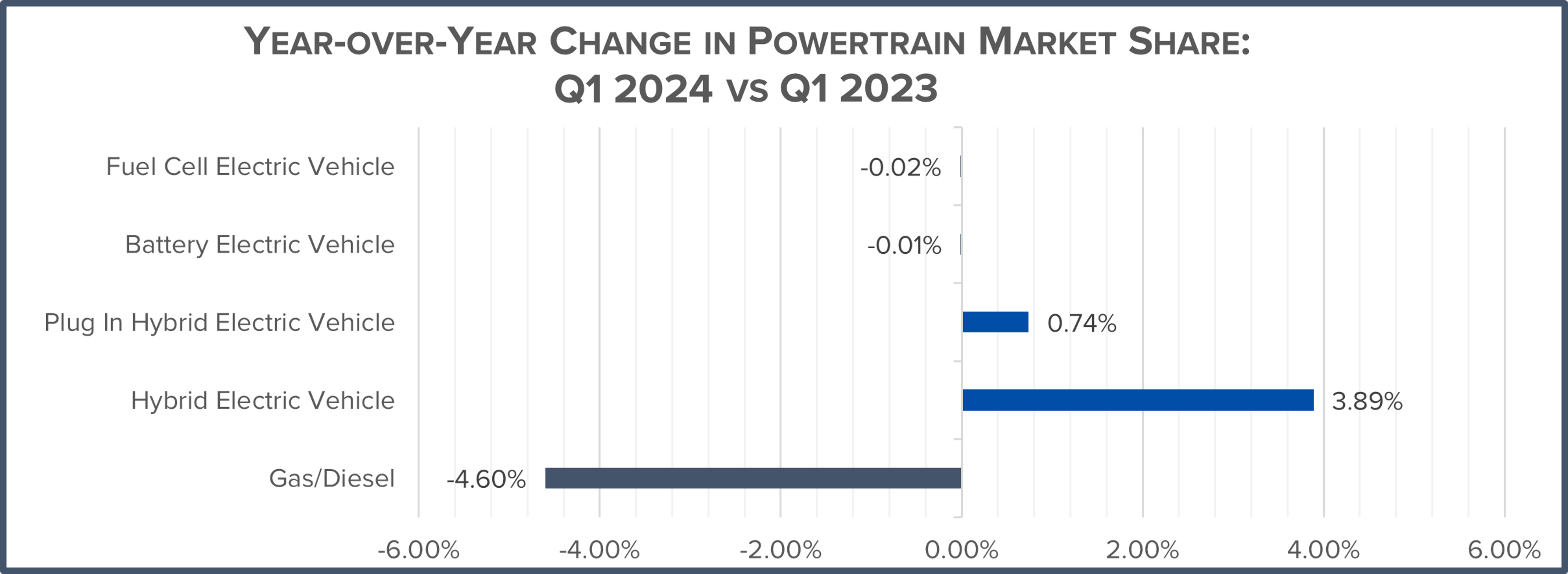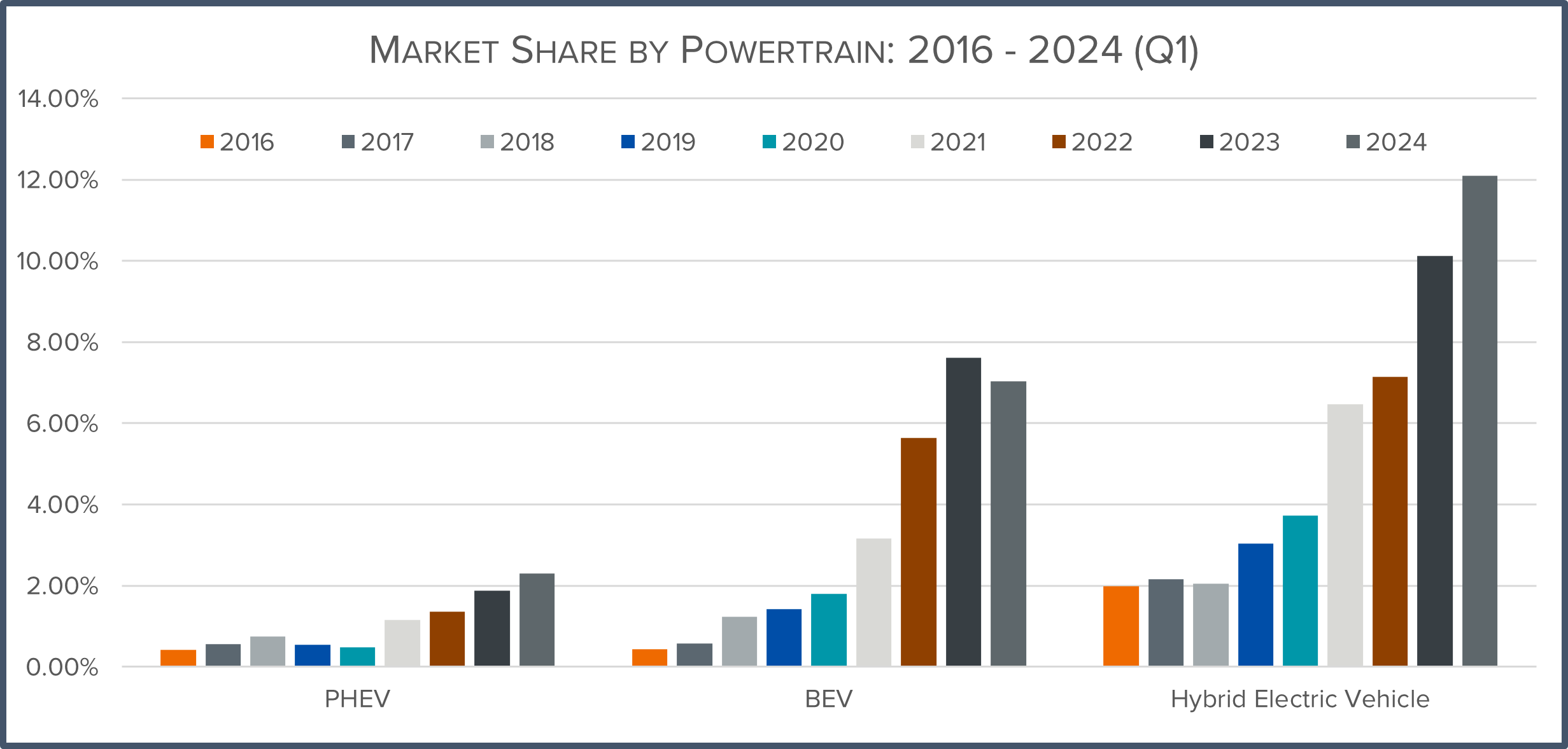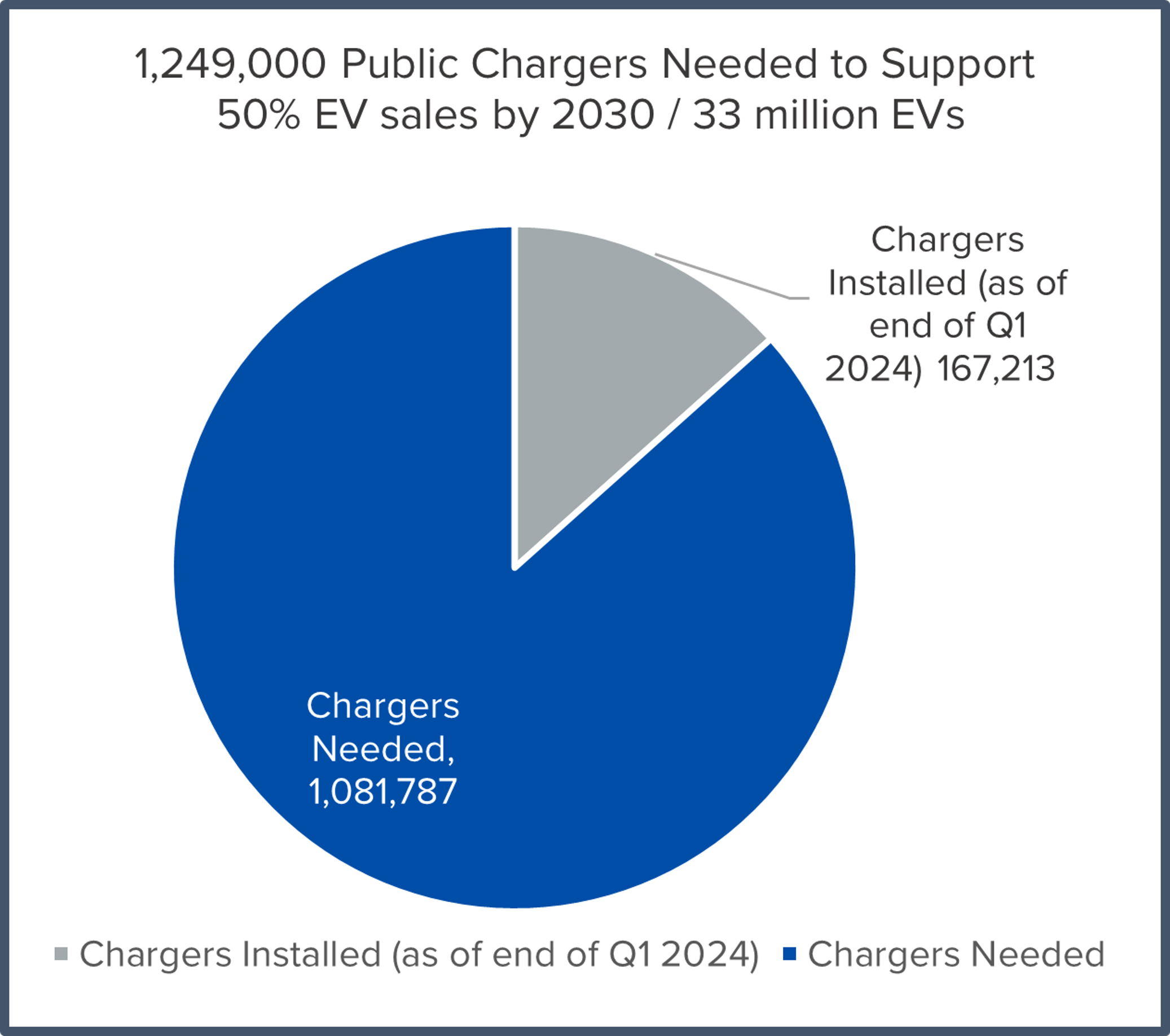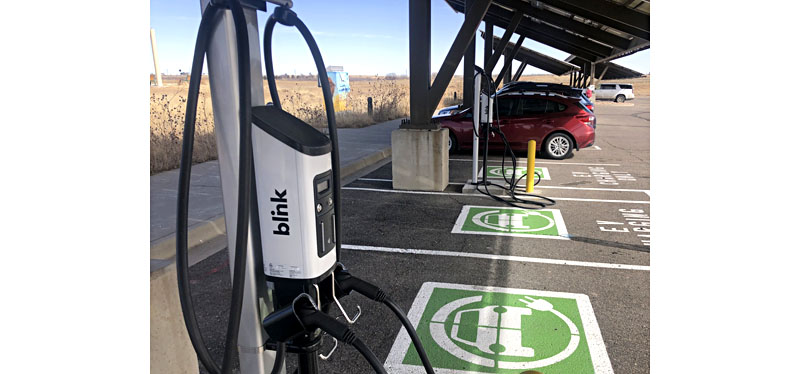New report also breaks down light-duty market share by powertrain and includes an update on EVs eligible for the federal 30D EV tax credit
Washington, D.C.—Alliance for Automotive Innovation has released its state-by-state analysis of the U.S. electric vehicle (EV) market for Q1 2024. The Get Connected Electric Vehicle Report summarizes EV sales and purchasing trends across all 50 states.
The report includes a breakdown of light-duty market share by powertrain (2016-2024) and an update on EVs eligible for the federal 30D EV tax credit.
Sales up year-over-year, but down sequentially
- EVs represent 9.3 percent of new light-duty vehicle sales in Q1 2024, down from 10.2 percent in Q4 2023 and up from 8.6 percent in Q1 2023.
- 113 EV cars, utility vehicles, pickup trucks and van models now available for sale in the U.S. in Q1 2024. Light truck sales represent 84 percent of EV market.

- EV market share increased in 37 states in Q1 2024 compared to Q1 2023.
- Top five list for EV sales in Q1 2024: California (24.8 percent); Washington (20.2 percent); District of Columbia (19.5 percent); Colorado (18.3 percent) and Hawaii (16.0 percent).
- More than 344,000 EVs sold in U.S. in Q1 2024, a 13-percent increase over Q1 2023.
- Total light-duty sales (all powertrains) increased 4.2 percent; internal combustion engine (ICE) vehicle market share contracted 4.6 percent.


Public EV charging still lags; not keeping up with current and projected EV sales
- In Q1 2024, the number of publicly available EV chargers increased 5 percent from the previous quarter — while total EVs on the road increased 8 percent.
- Nationwide, 344,533 EVs were registered in Q1 2024 but only 7,247 new public chargers were added — a ratio of 48 new EVs for every new public port.
- There are 4.7 million EVs on the road and a total of 167,213 publicly available charging outlets in the U.S. — a ratio of 28 EVs for every public port.
- More than one million more public chargers (940,370 Level 2 and 141,417 DC Fast) required to meet the National Renewable Energy Laboratory’s necessary infrastructure estimate for 2030.
- 438 chargers will need to be installed every day — or nearly 3 chargers every 10 minutes — through the end of 2030.

Tax credits and model eligibility
- The Inflation Reduction Act (IRA) split the $7500 federal EV tax credit in two, basing eligibility on EVs meeting various critical mineral, battery component, assembly and income requirements.
- Of the 113 EV models available for sale in Q1 2024, 19 percent (22 models) are eligible for all or part of the credit:
- 13 models are eligible for the full $7,500.
- 9 models are eligible for $3,750.
- 92 percent of EVs for sale in the U.S. were eligible for a tax credit before the IRA was enacted in 2022.
- A full list of models and information on eligibility for the EV tax credit is available HERE.
Automakers and battery partners have committed $125 billion (so far) to expand the production of EVs and batteries inside the U.S. and across North America. A successful transition to electrification — and meeting government requirements — depends on factors outside the vehicle.










Comments are closed.